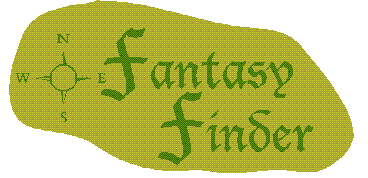
|

|
Mary Stewart
Mary Stewart
Mary Stewart
The Crystal Cave (Volume 1 of the Merlin Trilogy)
William Morrow 1970
The Hollow Hills (Volume 2 of the Merlin Trilogy)
William Morrow 1973
The Last Enchantment (Volume 3 of the Merlin Trilogy)
William Morrow 1979
When I told an old friend of mine I was planning to read Mary Stewart's Merlin trilogy, he looked at me. "Don't read that. It's historical", he told me - implying that historical novels were beneath us devoted fantasy readers. If you've got the same prejudices, I can assure you that you still can read this series and enjoy it. This is fantasy - no dragons, but plenty of magic. But it is also a series where the historical facts are taken into consideration. Mary Stewart has done a tremendous job researching before writing, and thought quite a lot before starting off. Myth and history, magic and engineering blended into one whole. And well done, at that.
Myrddin Emrys - more commonly known as Merlin, here telling his own story - lives in the king's palace in Maridunum, his grandfather's. His mother is the local king's daughter, his father unknown. The devil himself for all people knows. The life of an unacknowledged bastard prince isn't always easy - and if he isn't a fighter but a boy rather small for his age, he'd better learn to stay away as much as he can. Young Merlin finds his refuge in a cave not far from home, where the old hermit Galapas lives. Galapas tells Merlin a lot - about nature, about medicine but also about what people call magic. Merlin soon shows himself an extraordinary student, still young when his power outmatches his master's. But when the king gets killed in an accident, Merlin's servant Cerdic stands accused - and all Merlin's powers can't help him from getting executed. As a revenge, Merlin sets fire to the place and runs away. South, to Brittany, where his father is waiting.
I won't tell you the whole story. Most elements are, as far as I can judge, kept quite close to the myth. The first book, Lady Stewart tells us, is based mostly on Geoffrey of Monmouth's "History of the Kings of Britain", a work based on legends and pure invention, and the basis for most retellings of this story. But inclusions are made from different classical retellings of the story. Sometimes the explanations deviate from the common, like when Merlin raises the stones of Stonehenge. People around him believed it was magic, but here it was mere engineering. Stewart's Merlin is not the dangerous magician most people believed him to be, but he's at the same time more of a superman than they expect. Not only Britain's greatest magician at the time, but also a master of engineering, medicine and music, he's almost too much. Fortunately, he's no warrior and he doesn't understand anything about women, these shortcomings making him a little more human - human enough to be a person you can relate to, feel for, whose company you can enjoy for a thousand pages or so.
The rest of the characters - Arthur, Guinevere, Ector, Cei, Bedwyn, Morgause, Morgan (Morgana le Fay), Mordred, Gawain and so on - are all there, all except for Lancelot, who was included in the Arthurian story quite late anyway. In some cases they're slightly changed maybe, but it's more because of the author's need to straighten things out to make a coherent story than anything else, more of an interpretation than an invention. And I must say I think the interpretation is most skillfully done, giving the impression that "this is it". If you want the legend, you've got it. If you want the historical scenario, you've got it. If you want something else, read this series first so that you'll notice the differences. It's not without reason this is one of today's most read Arthurian series.
Karl Henriksson
P.S. I must recommend the hardcover edition of the complete trilogy. A bargain!
| Mary Stewart's Merlin Trilogy | Hardcover |  |
| The Crystal Cave | Trade Paperback |  |
| The Hollow Hills | Trade Paperback |  |
| The Last Enchantment | Trade Paperback |  |
© Henriksson & Henriksson 1997.